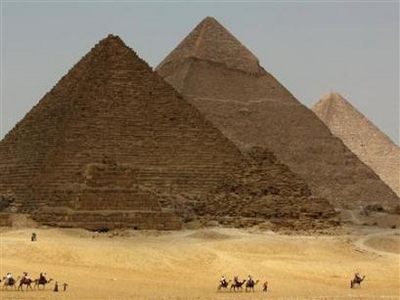Study shows life was tough for ancient Egyptians
(Agencies)
Updated: 2008-03-30 21:23
Updated: 2008-03-30 21:23
CAIRO - New evidence of a sick, deprived population working under harsh conditions contradicts earlier images of wealth and abundance from the art records of the ancient Egyptian city of Tell el-Amarna, a study has found.
Tell el-Amarna was briefly the capital of ancient Egypt during the reign of the pharaoh Akhenaten, who abandoned most of Egypt's old gods in favor of the Aten sun disk and brought in a new and more expressive style of art.
Akhenaten, who ruled Egypt between 1379 and 1362 BC, built and lived in Tell el-Amarna in central Egypt for 15 years. The city was largely abandoned shortly after his death and the ascendance of the famous boy king Tutankhamen to the throne.
Studies on the remains of ordinary ancient Egyptians in a cemetery in Tell el-Amarna showed that many of them suffered from anemia, fractured bones, stunted growth and high juvenile mortality rates, according to professors Barry Kemp and Gerome Rose, who led the research.
Rose, a professor of anthropology in the University of Arkansas in the United States, said adults buried in the cemetery were probably brought there from other parts of Egypt.
"This means that we have a period of deprivation in Egypt prior to the Amarna phase," he told an audience of archaeologists and Egyptologists in Cairo on Thursday evening.
"So maybe things were not so good for the average Egyptian and maybe Akhenaten said we have to change to make things better," he said.
Kemp, director of the Amarna Project which seeks in part to increase public knowledge of Tell el-Amarna and surrounding region, said little attention has been given to the cemeteries of ordinary ancient Egyptians.
"A very large number of ordinary cemeteries have been excavated but just for the objects and very little attention has been paid for the human remain," he told Reuters.
|
||
|
||
|
|
|
|


